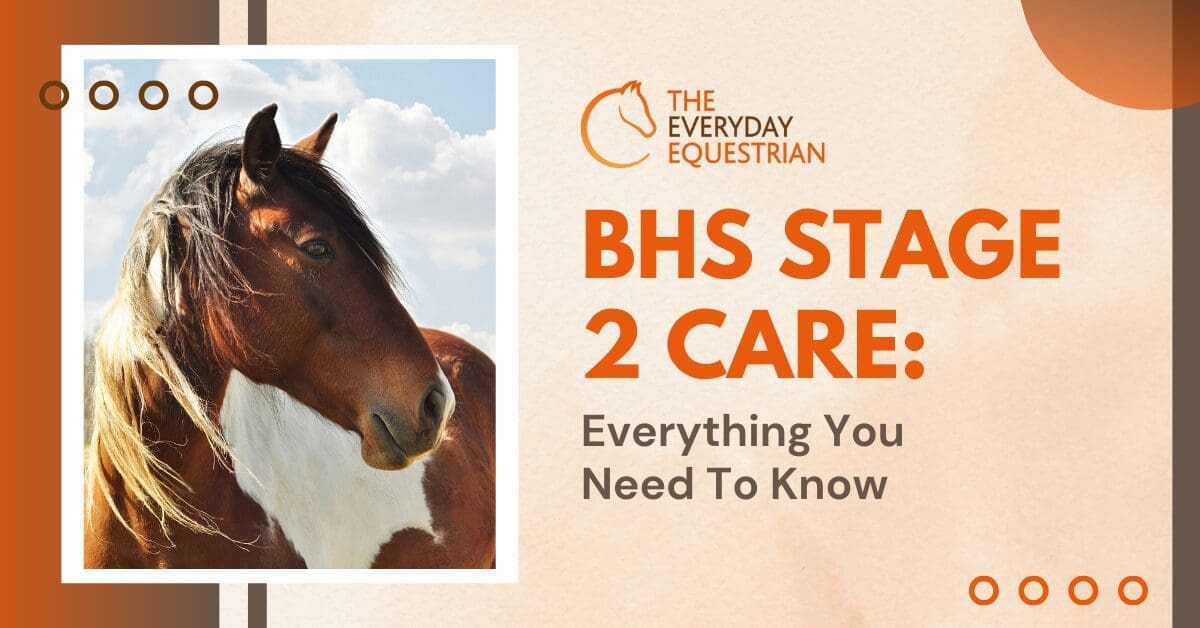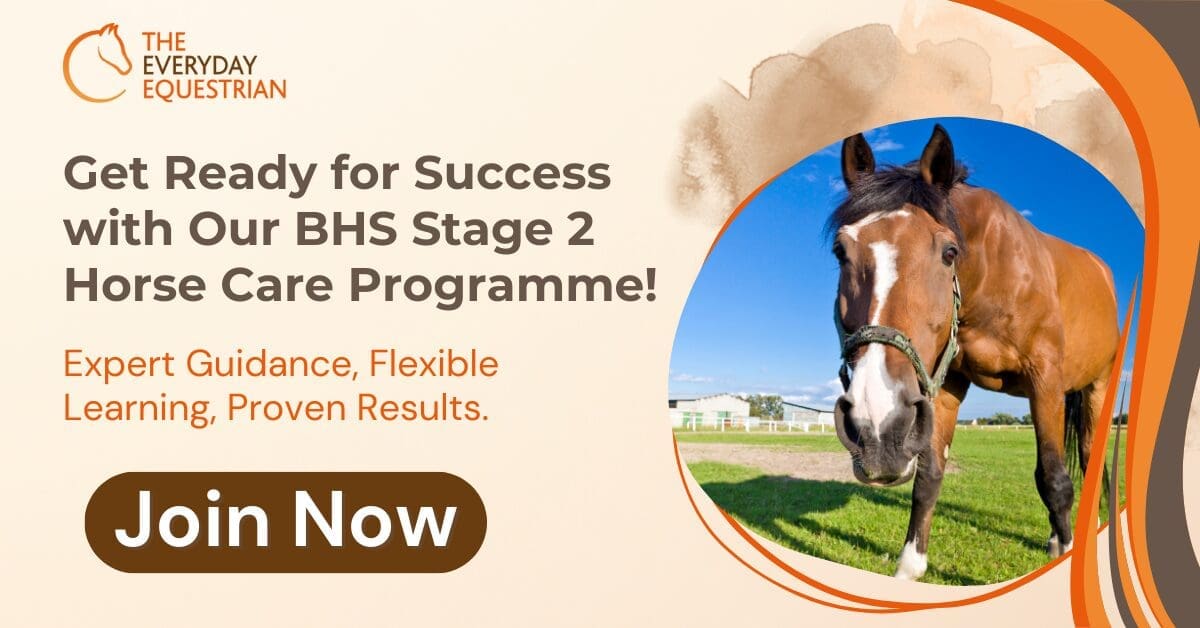The BHS Stage 2 Care qualification is essential for anyone who is considering a career in the equestrian industry, or for any horse owner who wants to learn more about horse care and management. It covers essential skills and knowledge about caring for horses and will help you develop your career in the equestrian industry in the UK and further afield. In this guide, I’ll explain everything you need to know about the BHS Stage 2 Care qualification, what you’ll learn, the benefits, and why it’s important for your career and horse! Practical training at a BHS Approved Centre is crucial for successful exam readiness and skill development.
Key Takeaways
- BHS Stage 2 Care qualification is the next step in the career ladder for students who have already achieved the BHS Stage 1 Care qualification.
- It is a ‘second-level’ qualification that prepares students for a ‘Foundation Groom’ role in the equestrian industry.
- Achieving the BHS Stage 2 Care qualification opens up future career development opportunities, such as the BHS Stage 2 Riding, Lunging, and Coaching qualifications and progression to the BHS Stage 3 Care qualification.
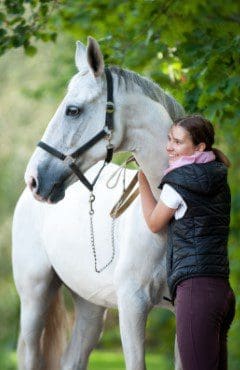
Understanding BHS Stage 2 Care
BHS Stage 2 Care, or the ‘Stage 2 Foundation Groom’, is an essential step in BHS ‘Groom Pathway’, developing key horse management skills. It prepares students for progression to more senior roles, such as Yard or Centre Manager. This qualification boosts a rider’s knowledge and competence, particularly around best practices in horse care with horse welfare as a priority.
The British Horse Society (BHS), in collaboration with industry employers and educational organisations, has designed this qualification to align with industry standards and requirements. The BHS Qualifications (BHSQ) oversees the qualification process to ensure assessments meet national standards.
Why study for the BHS Stage 2 Care qualification?
The BHS Stage 2 Care qualification offers numerous benefits, making it attractive to a wide audience. Career students and college students gain access to various job opportunities in the equestrian industry, building a solid foundation in horse care and management. Horse owners and parents of children with ponies also benefit from gaining essential knowledge for correct, ethical horse management knowledge and skills.
Additionally, the qualification enhances practical skills, boosting candidates’ competence and confidence. Whether aiming to become an assistant groom or pursue further BHS qualifications, this certification is a crucial step towards career goals and positively impacts the equestrian community. It is particularly beneficial for those seeking career advancement, including individuals looking for their first job in the industry or those currently employed who wish to improve their qualifications.
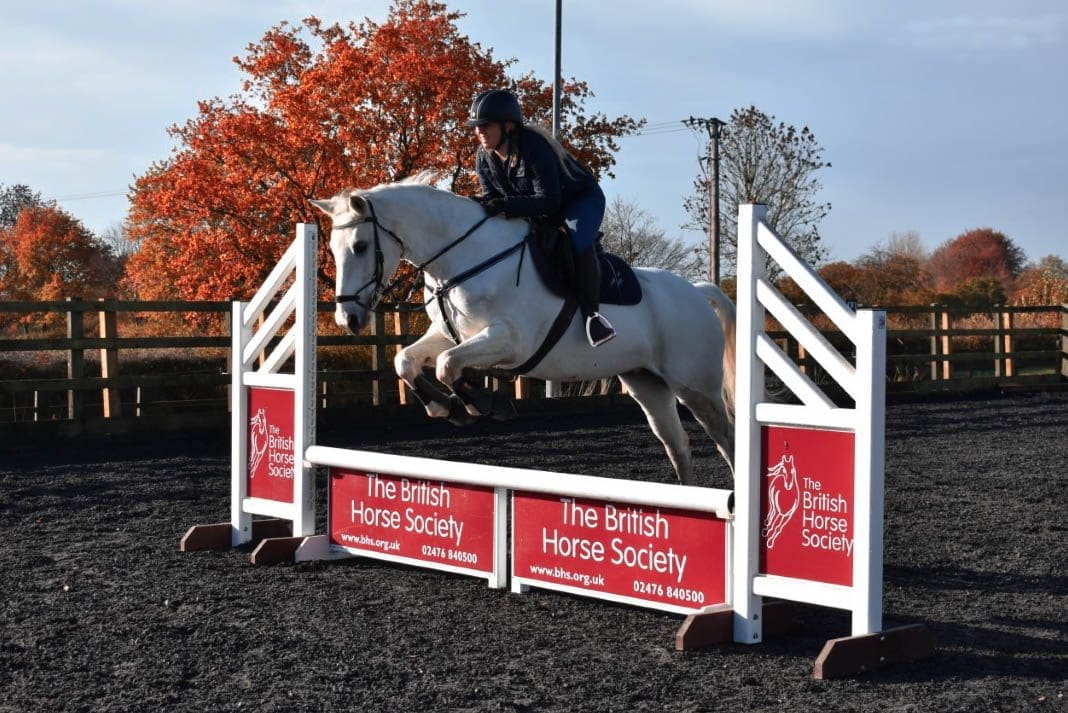
Entry Requirements for BHS Stage 2
Candidates must already have achieved the BHS Stage 1 Care qualification to enter the BHS Stage 2 assessment. Alternatively, students who have already achieved the complete suite of BHS Challenge Awards at a minimum of Silver level may take direct entry to the BHS Stage 2 assessment.
Core Components of BHS Stage 2 Care
The BHS Stage 2 Care course offers a comprehensive understanding of horse care and management, emphasising efficient, correct and safe practical skills essential for the equestrian industry. The assessment day covers various key knowledge areas, demonstrating a range of practical skills and discussing opportunities to share a candidate’s experience and underpinning knowledge.
The core components include basic horse anatomy, care and management, and feeding and nutrition. Each area is critical for developing a well-rounded understanding of horse care, ensuring candidates are well-prepared for the BHS Stage 2 assessment and future responsibilities in the equestrian field.
However, studying towards the BHS Stage 2 Care assessment is possible without actually taking the exam. For example, if you’re a parent who has recently bought a pony for your child and want to develop your knowledge and skills in caring for horses, then you may choose to study the theory sections from the syllabus to guide your learning. Online courses are the perfect way to build confidence in correct horsemanship without the pressure of an external assessment.
For students working towards the BHS Stage 2 Care assessment, they must dedicate time and focus towards both theory and hands-on, practical skills to industry standards. It’s impossible and not advisable to pass the assessment by reading books!
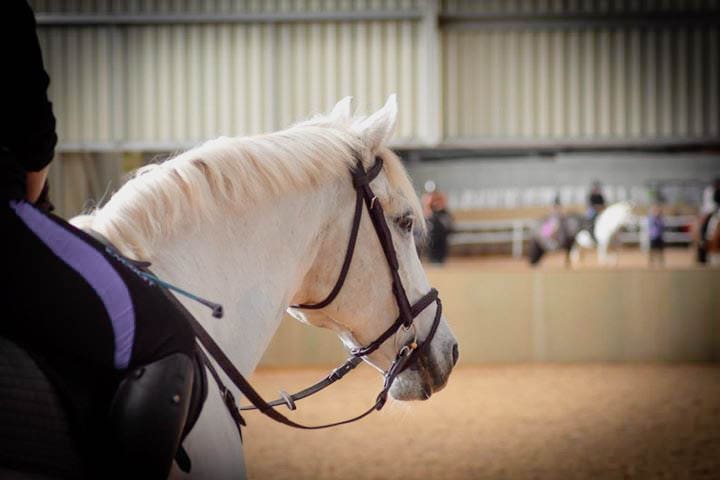
Horse Care and Management
Effective horse care and management involve daily routines that prioritise health, hygiene, and safety in stable environments. Tasks such as grooming, horse health checks, and stable hygiene ensure a horse’s well-being. An assistant or foundation groom typically helps with these tasks, maintaining a tidy and safe environment in a yard.
An assistant groom’s role is crucial, as they monitor the health and well-being of equines and report any health issues promptly. Their responsibilities include grooming, feeding, maintaining stable hygiene, and ensuring horses are well-cared for and safe. They also need to feed horses, managing their diets based on their fitness and requirements.
The assessment also covers broader horse management topics, such as stable design, field maintenance, worming, transporting horses, tack and equipment, and preparing horses for presentation.
Basic Horse Anatomy
Basic horse anatomy is fundamental for anyone involved in horse care. This includes recognising key structures like the skeletal system, muscles, and organs. Candidates must understand horses’ skeletal structures and major organ systems.
Familiarity with major body systems, including the muscular, skeletal, digestive and circulatory systems, is crucial for effective horse management. This helps identify potential issues, reduces the risk of certain disorders and diseases, and ensures horses receive appropriate care and attention.
Feeding and Nutrition
Feeding and nutrition are critical in horse care due to horses’ unique digestive systems. As non-ruminant herbivores, horses require a fibre-rich diet, primarily from forage. Understanding their digestive system is essential for creating effective feeding plans that promote health and performance., and reduce the risk of health issues such as gastric ulcers, colic or laminitis.
Understanding horse digestion, including diet composition and feeding schedules, is vital for optimal health. This ensures that horses are fed the necessary nutrients and energy to perform well and stay healthy.

Preparing for the BHS Stage 2 Assessment
Preparing for the BHS Stage 2 assessment requires a structured approach combining theoretical knowledge and practical training. Structured study plans help candidates stay organized and focused. Understanding the exam format and practising with revision questions and practical tasks are also crucial for effective preparation. Students taking the exam are expected to perform a wide range of practical skills safely, correctly and efficiently to meet industry requirements.
Combining theoretical learning with hands-on experience ensures candidates are well-prepared and confident for the BHS Stage 2 Care exam.
Study Resources
Various study materials, including textbooks, online resources, and in-person training, are available to help candidates prepare for the BHS Stage 2 Care exam. A workbook designed for BHS Stage 2 offers typical assessment questions and model answers, providing examples of expected responses during the exam.
Online modules provide comprehensive lessons aligned with the BHS Stage 2 syllabus, allowing candidates to revisit topics and monitor their progress. Completing these courses equips learners with foundational horse care and management knowledge, preparing them for practical work as a groom.
Practical Experience
Practical experience is essential for applicants seeking proficiency in horse care as part of the BHS Stage 2 Care training. Daily tasks performed by an assistant groom, such as grooming, feeding, and maintaining stable cleanliness, are vital for developing the practical skills and knowledge required for the assessment.
Hands-on experience allows candidates to apply theoretical knowledge in real-world scenarios, enhancing their understanding and readiness for the BHS Stage 2 assessment. This practical training is essential for career progression and success in the equestrian industry.
Skills Record and Progress Tracking
Students who are taking the BHS Stage 2 Care assessment will need to work with a British Horse Society Accredited Professional Coach to complete their ‘Skills Record’. This booklet is provided to students when they book their assessment through the BHS website, and they must have all skills sections relevant to the BHS Stage 2 Care assessment signed off by the Coach in advance of the assessment date. Further, students will be required to provide their completed Skills Record to the BHS Assessors on the day of their exam.
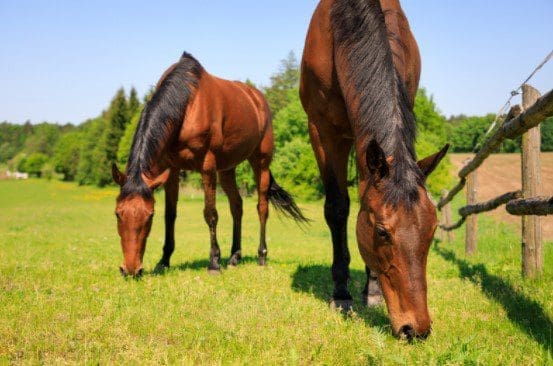
Career Pathways with BHS Stage 2 Care Qualification
The BHS Stage 2 Care qualification can lead to roles in riding schools, livery yards, competition yards, rehabilitation yards, horse welfare charities, and other equestrian settings. It provides a strong foundation for further qualifications and career advancement in the equestrian field.
Seeking Employment in the Equestrian Industry
Individuals with BHS Stage 2 qualifications can pursue employment within various businesses and organisations in the equestrian sector. Specialised job platforms cater specifically to equestrian employment, facilitating job searches within the industry.
The BHS Stage 2 qualification equips candidates with the skills and knowledge needed to excel in various roles, making them attractive to potential employers and opening numerous career pathways, including the BHS equine excellence pathway. This certification is a valuable asset for anyone seeking to establish or advance their career in the equestrian industry, evidencing their knowledge, skills and standards of horse care.
Further BHS Qualifications
After completing BHS Stage 2, students can pursue additional BHS qualifications to enhance their career prospects. Qualifications such as the BHS Stage 3 suite of qualifications, i.e., riding, horse care, lunging and coaching, can significantly enhance career prospects and specialisation in specific areas of equestrianism.
The BHS Stage 3 qualifications focus on higher-level horse care and management, further developing the skills and knowledge gained in BHS Stage 2. This progression path allows individuals to build on their foundation and achieve further career progression in the equestrian industry.
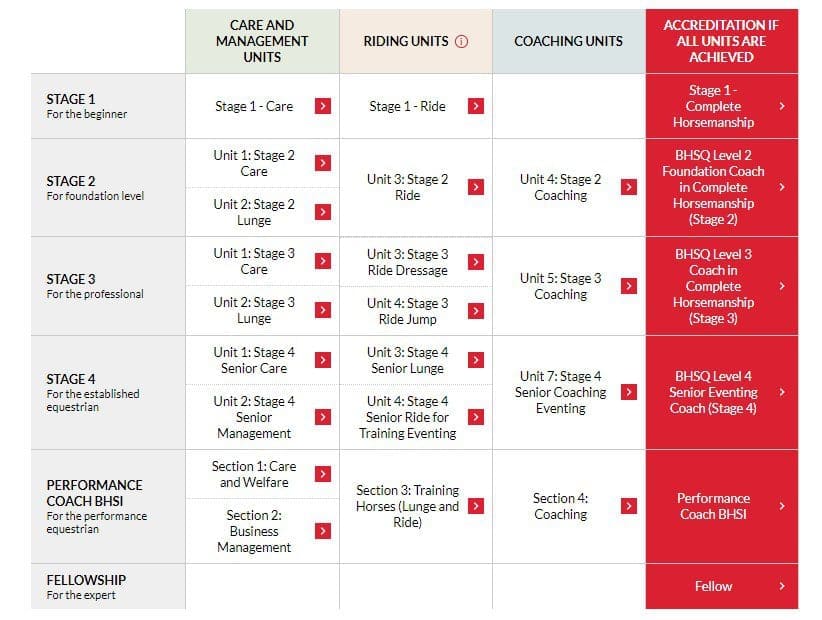
Summary
In conclusion, the BHS Stage 2 Care qualification is an essential step for anyone seeking to advance their career in the equestrian industry. It provides comprehensive knowledge and practical skills essential for effective horse care and management. Candidates can achieve this valuable certification by understanding the core components and preparing effectively for the assessment.
The qualification opens up diverse career pathways and opportunities for further advancement within the BHS Equine Excellence Pathway. Whether you are a career student, horse owner, or parent of a pony-loving child, the BHS Stage 2 Care qualification equips you with the expertise and confidence to excel in the equestrian world.
Frequently Asked Questions
What is the BHS Stage 2 Care qualification?
BHS Stage 2 Care, or the ‘Stage 2 Foundation Groom,’ is a qualification that enhances key skills in horse management in horse care and welfare.
Who should consider studying for the BHS Stage 2 Care qualification?
The BHS Stage 2 Care qualification is recommended for career students, college students, horse owners, and parents of children involved in equestrian activities. It enhances practical horse care skills and improves job prospects in the industry.
What are the entry requirements for entering a BHS Stage 2 Care assessment?
Students must have already achieved the BHS Stage 1 Care qualification or completed the BHS Challenge Awards Silver suite of certificates. However, for non-career students, anyone can sign up to online training and courses to develop their knowledge and skills in horse care. Students must also have ‘Gold’ membership of the British Horse Society.
What are the core components of the BHS Stage 2 Care course?
The core components of the BHS Stage 2 Care course are basic horse anatomy, horse care and management, and feeding and nutrition. Mastering these areas is essential for a comprehensive understanding of horse care.
How can I prepare for the BHS Stage 2 assessment?
To prepare effectively for the BHS Stage 2 assessment, follow a structured study plan, engage with diverse study materials such as workbooks and online modules, and gain practical experience while keeping a detailed skills record to monitor your progress. This comprehensive approach will ensure you are well-prepared for the assessment.
Where can I start studying towards the BHS Stage 2 Care qualification?
Click HERE to find out more about my exclusive BHS Stage 2 Care Preparation course.

